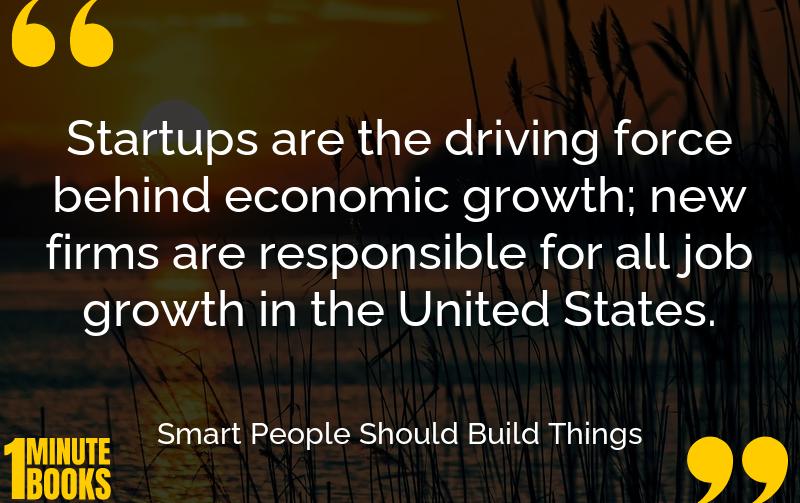
Andrew Yang’s ‘Smart People Should Build Things’ argues that elite graduates should consider startups over traditional corporate jobs to enhance innovation and economic growth.
Main Lessons
- Elite graduates often choose high-paying, prestigious corporate roles due to peer influence and structured application processes.
- Professional service firms spend heavily on recruitment, offering growth opportunities to attract students.
- There is often a gap between job expectations and realities in corporate roles, leading to high attrition rates.
- Startups drive economic development and job growth more effectively than large corporations.
- Innovation typically originates from smaller firms; they produce more patents per employee than larger firms.
- Share trading and large firm operations add less economic value compared to startups’ innovations.
- Starting a business requires meticulous preparation, including securing funds, co-founders, and a strong network.
- Networking is crucial in entrepreneurship, aiding in capital raising and team building.
- Positioning businesses in cost-effective and strategically beneficial locations can enhance success.
- Joining startups early can lead to lucrative careers and skill acquisition.
- Universities should nurture entrepreneurship by providing role models, mentors, and practical education programs.
- Action-oriented entrepreneurship programs can foster real businesses and stimulate economic growth.
- Promoting entrepreneurship over traditional career paths can redefine the economic future.
- Startups offer dynamic challenges, fostering skill growth and innovation for graduates.








